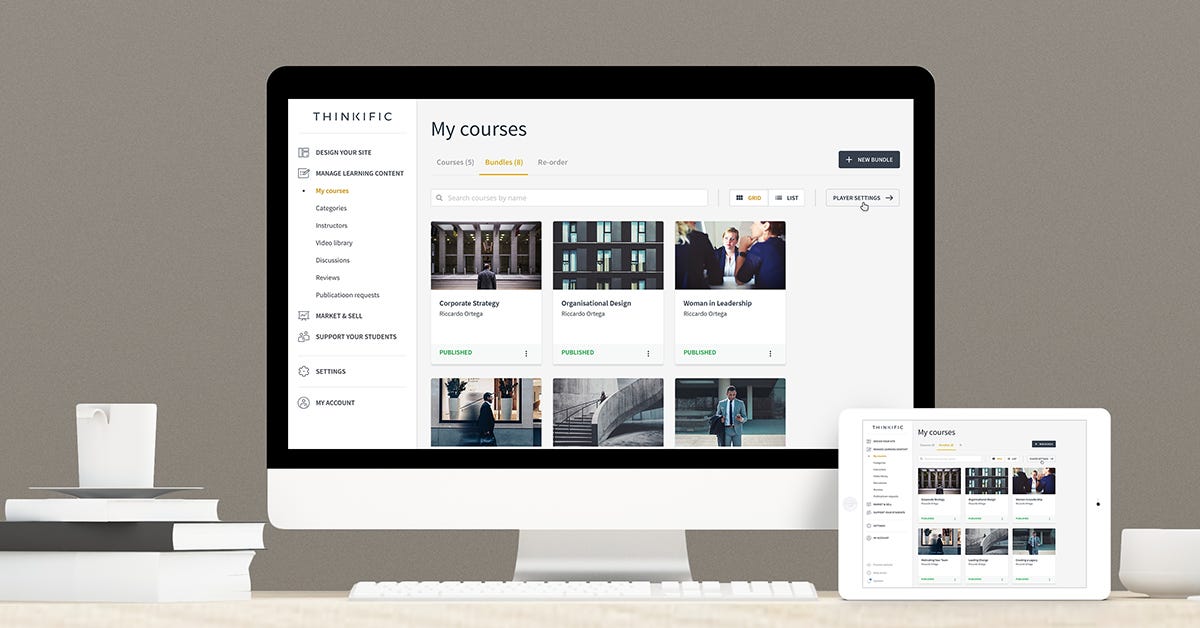Coliving, Connection and Why Shared Spaces Matter Even More in Midlife
This week: reflecting on the power of shared spaces, with good reads on picking the right side hustle, a high-stakes remote work scam, why some places feel like home, and evolving nomad visa options.
✈️ Welcome to Midlife Nomads, your weekly hit of real talk, smart ideas, and helpful tools for building a location-independent life through remote work, travel, and business.
It’s been a productive week… one of those rare stretches where the work flows easily and my to-do list has actually shrunk by the end of the day. I’ve been staying in a hostel with a warm, vibrant shared space and think that’s part of what’s made the difference.
There’s something about being around other people who are also building things, writing, researching, and figuring it out. You don’t even have to talk to anyone. Just being in the same room, each doing your own thing, creates a kind of quiet momentum. Coworking, even informally, can do that.
Shared spaces like this aren’t just budget choices, but part of what makes this lifestyle sustainable. They offer a way to stay connected and get work done without feeling completely isolated (ahem, it’s no coincidence that I’ve written about loneliness recently).
The shared space here is comfortable and invites you to stay a while. It’s not loud. It’s not chaotic. It’s just open. Conversations happen organically, over coffee or while making plans for dinner. You can join in or opt out, and no one takes it personally.
I ended up in a great conversation with two others last night—a man from Canada and a woman from Mexico, both somewhere in that 30-to-50 range. We talked about hostel life, and how more of us “older folks” seem to be choosing these kinds of places not just for affordability, but for a sense of community on the road.
Is it more prevalent since COVID? Maybe… I have no data, only personal observations. And what I see is that I don’t often feel like the oldest person in the space anymore (which has been the norm in more places than I’d like to admit). People in their 40s, 50s, and 60s+ are choosing communal setups that don’t feel like backpacker hostels, but aren’t as isolating as hotels, either.
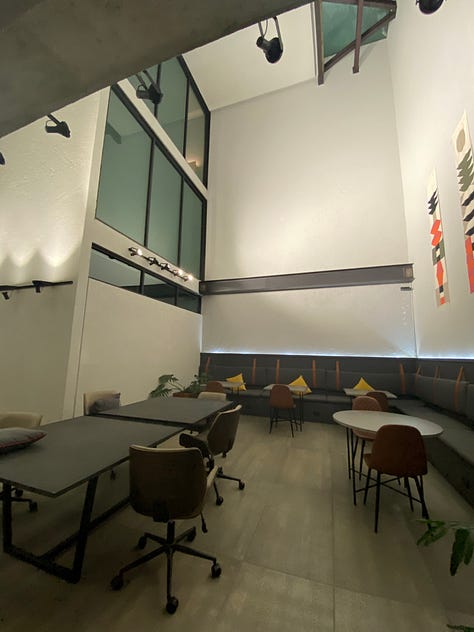
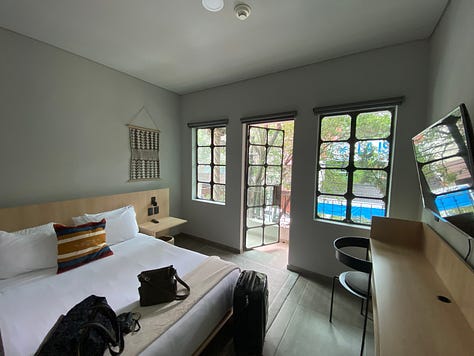
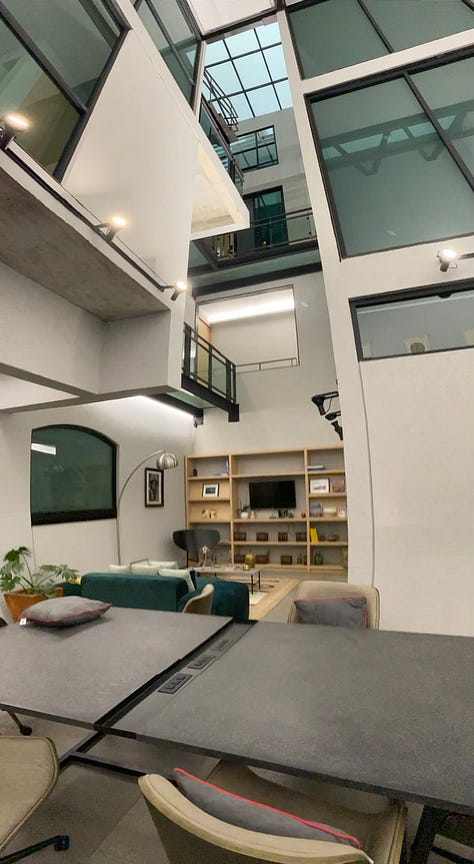
I see Outsite growing, and am heading to another one of those myself in October (disclosure: that’s an affiliate link that’ll give you $50 off your Outsite membership).
I get emails about an intentional community for women 55+ coming together in France, and hear rave reviews from a live-aboard cruise ship that everyone initially said was crazy and would never work.
Coliving is working, you guys. Sure, there are personalities and logistics and expenses to work out. People are figuring it out, because it’s worth it.
These spaces offer an easy kind of connection. You can find someone to eat with, bounce around ideas, or just know there’s someone nearby if you want company. But you’re not locked in. You can retreat to your own space or throw on the headphones (the universal sign for “Not now, please…”) and tune out.
Being in a space where it’s normal to share, to check in, to be part of a loose, temporary community… it feels good. It has me thinking that maybe I’m not going to find one perfect place to “settle down” and spend forever and ever.
Maybe it’s a pattern of places. A few that I return to, depending on what I need. A circuit that supports work, connection, and rest in different ways.
We tend to split our time into buckets: productive time, where you’re supposed to be focused and serious, and don’t you dare have fun when you’re “on the clock.” Then we have vacation time, where you’re supposed to somehow shut your brain off for a week or two, go hog wild at the buffet, indulge in the bottomless drinks.
Why does it have to be that way?
Shared spaces like coliving houses, hostels, and intentional community setups can offer something more balanced. You can work without feeling isolated. You can rest without zoning out completely. There’s a middle ground here that’s easy to overlook, and I think more of us are looking for it now than ever before.
I don’t want my life to be completely transient, but am thinking more about this idea of shared spaces as a big part of the equation for a sustainable location-independent life. And maybe that’s something worth paying more attention to.
What about you?
If you’ve got a work trip or even a vacation coming up, would you consider staying in a hostel or coliving space? Not the creaky bunkbed, filthy shower room kind, but one of the newer, nicer ones? Some are surprisingly stylish and community-oriented, with private rooms, quiet hours, and great coffee.
Try it once. You might be surprised.
Anyway, while I’ve been soaking up the quiet buzz of shared space and rethinking what “home” might mean long-term, I’ve also come across some thoughtful and useful reads from the digital nomad space this week. I hope you enjoy them, too.
Why Do Some Places Instantly Feel Like Home?
Beckett Johnson’s reflection on place and belonging really hit this week. It’s a lyrical essay that explores the invisible bond between people and place… and how some landscapes seem to recognize us before we even arrive. If you’ve ever felt out of place, in between homes, or like you’re still searching for where you truly belong, this one might speak to you.
Big Changes Across the Nomad Visa Spectrum
This is one of those annoying flip-chart things that looks like Google Ads barfed on the page, BUT the info inside is actually quite good. So please ignore the terrible format while catching up on which countries are eliminating their nomad visa options and which are introducing new ones.
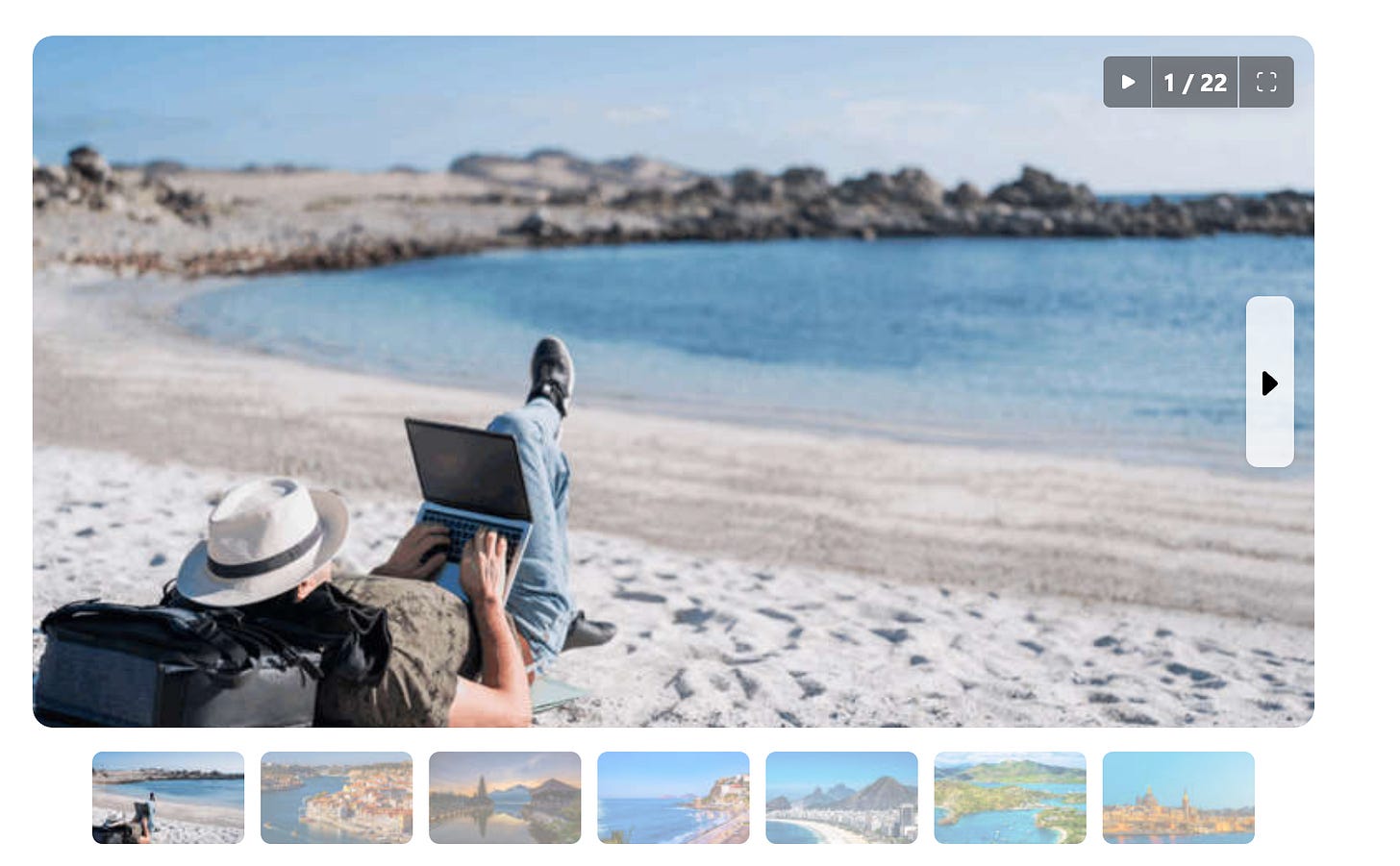
👉🏼 Read 10 Digital Nomad Visas Being Phased Out-and 10 Being Introduced in 2025 on MSN
This Wild Remote Work Scam Underscores the Importance of Vetting Opportunities (and People)
An Arizona woman just got 8 years in prison for helping North Korean IT workers pose as U.S. remote hires—earning millions and funneling it into North Korea’s nuclear program. It’s a wild story that underscores just how far scams can go in the digital age—and a reminder to vet opportunities (and hires) with care. If it feels sketchy, it probably is.
👉🏼 Read Ninety laptops, millions of dollars: US woman jailed over North Korea remote-work scam on The Guardian
Let’s Talk Successful Side Hustles
If you're stuck spinning your wheels on what side hustle to start (or afraid of picking the wrong thing) this guide will help you cut through the noise. Jo Barnes' NICHE Framework gives you a simple, practical way to choose a direction that actually fits you, especially if you’re in midlife and ready to build something that lasts.
🧰 Remote Work Tool of the Week: Thinkific
If you’ve got skills, stories, or systems to share, Thinkific makes it easy to turn your knowledge into an online course without needing to be tech-savvy. Midlife Nomads community members can try it free for 30 days to start building a freedom-friendly income stream from anywhere.
Full disclosure: that’s an affiliate link, which means we may earn a small commission at no extra cost to you. It helps support Midlife Nomads, and we only recommend tools we actually use and love.
✌🏻 Miranda
P.S. ICYMI: If you’re craving more time and less chaos in your remote business, this guide to 25 smart remote work automations published earlier this week will help you work smarter. Maybe you’ll even finish your coffee while it’s still hot.






